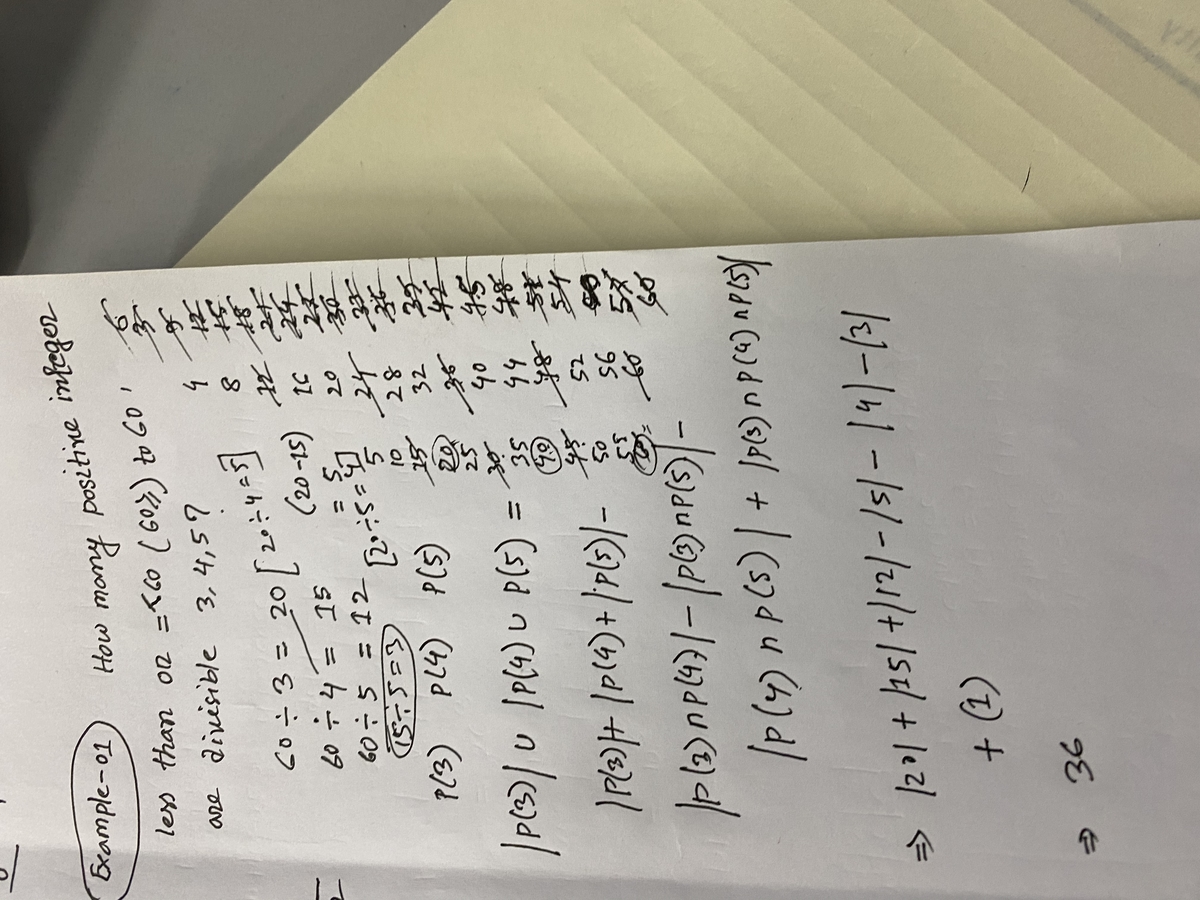Should I look the other way around?
Probability
Level
2
How many positive integers less than or equal to 60 are divisible by 3, 4, or 5?
The answer is 36.
This section requires Javascript.
You are seeing this because something didn't load right. We suggest you, (a) try
refreshing the page, (b) enabling javascript if it is disabled on your browser and,
finally, (c)
loading the
non-javascript version of this page
. We're sorry about the hassle.

We use PIE to count the number of integers: ∣ A ∪ B ∪ C ∣ = ∣ A ∣ + ∣ B ∣ + ∣ C ∣ − ∣ A ∩ B ∣ − ∣ A ∩ C ∣ − ∣ B ∩ C ∣ + ∣ A ∩ B ∩ C ∣
= ⌊ 3 6 0 ⌋ + ⌊ 4 6 0 ⌋ + ⌊ 5 6 0 ⌋ − ⌊ 1 2 6 0 ⌋ − ⌊ 1 5 6 0 ⌋ − ⌊ 2 0 6 0 ⌋ + ⌊ 6 0 6 0 ⌋
= 2 0 + 1 5 + 1 2 − 5 − 4 − 3 + 1 = 3 6